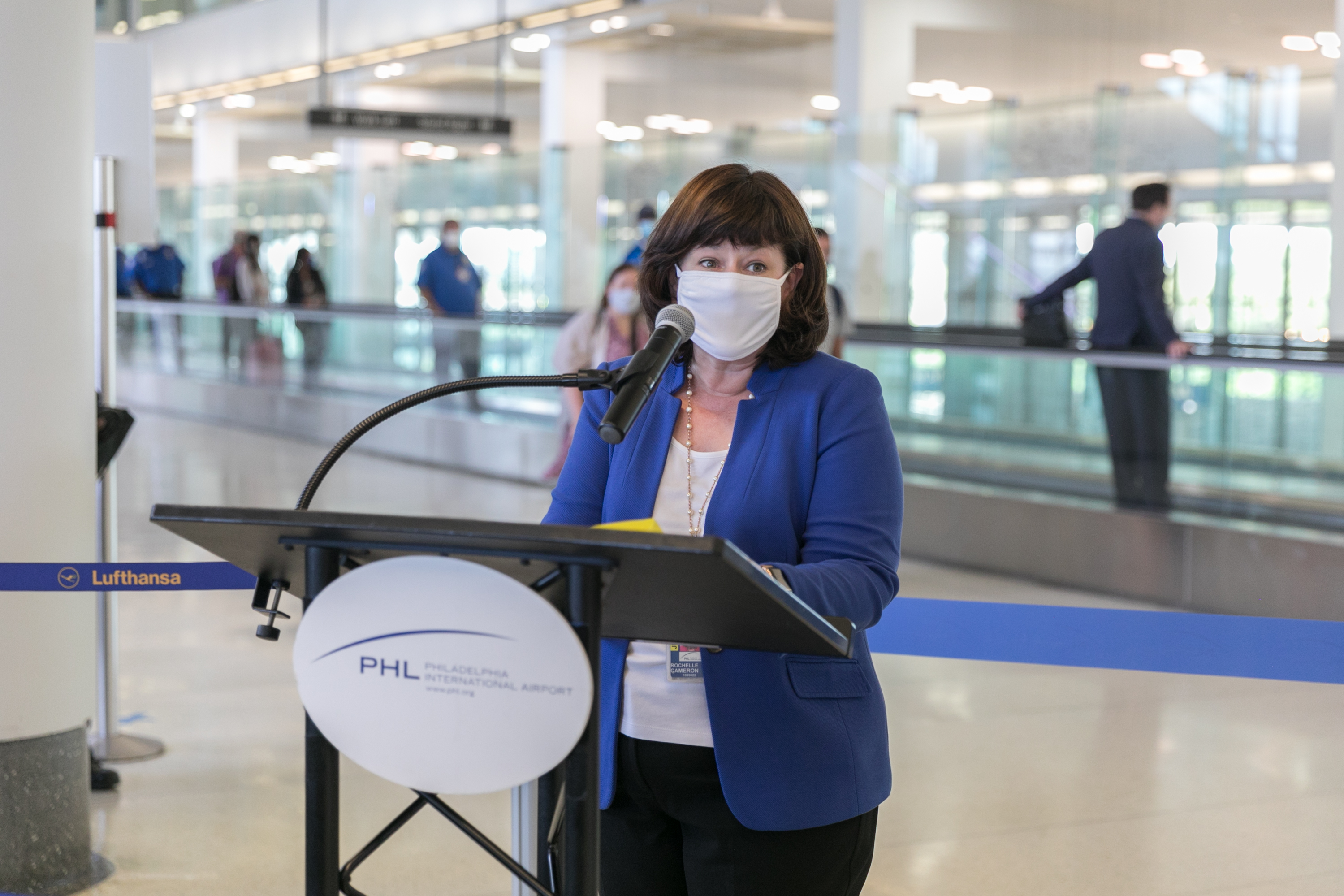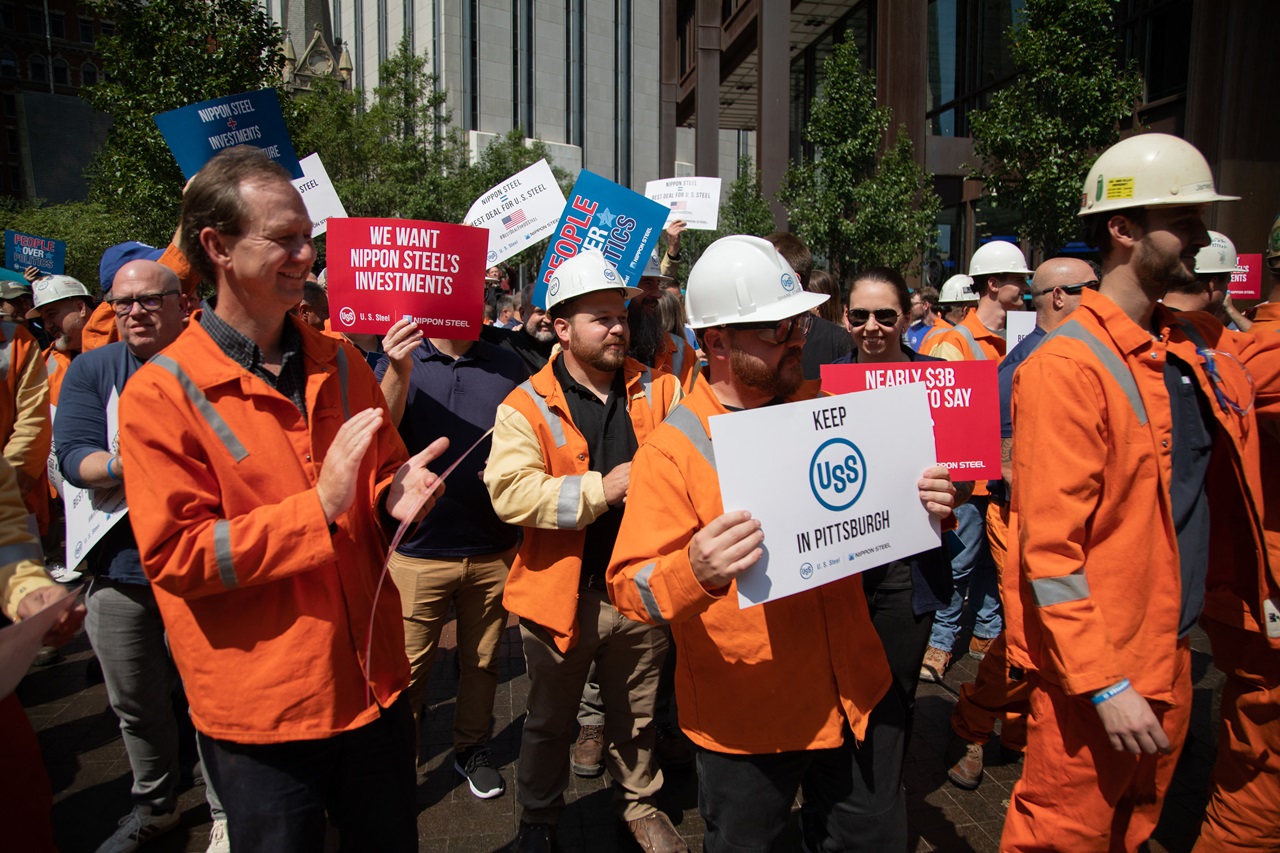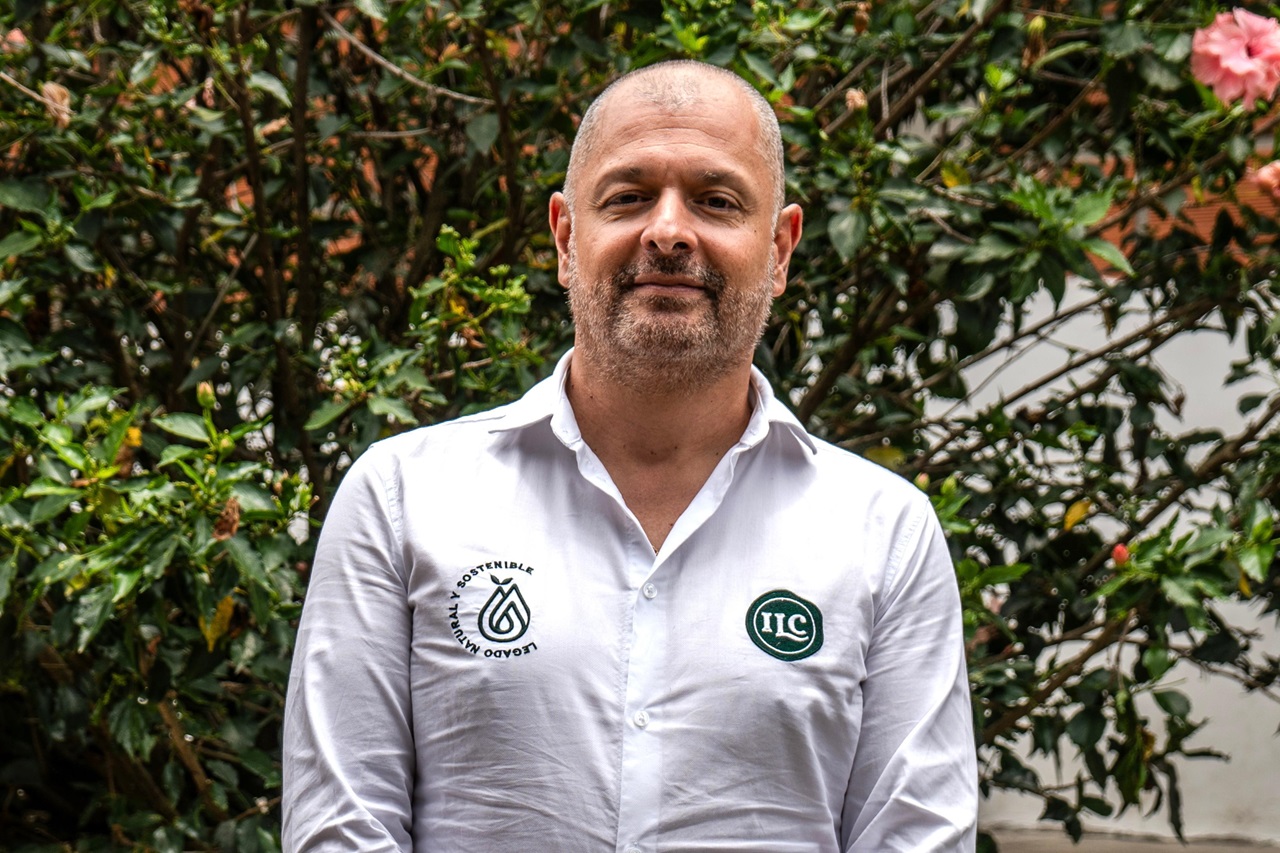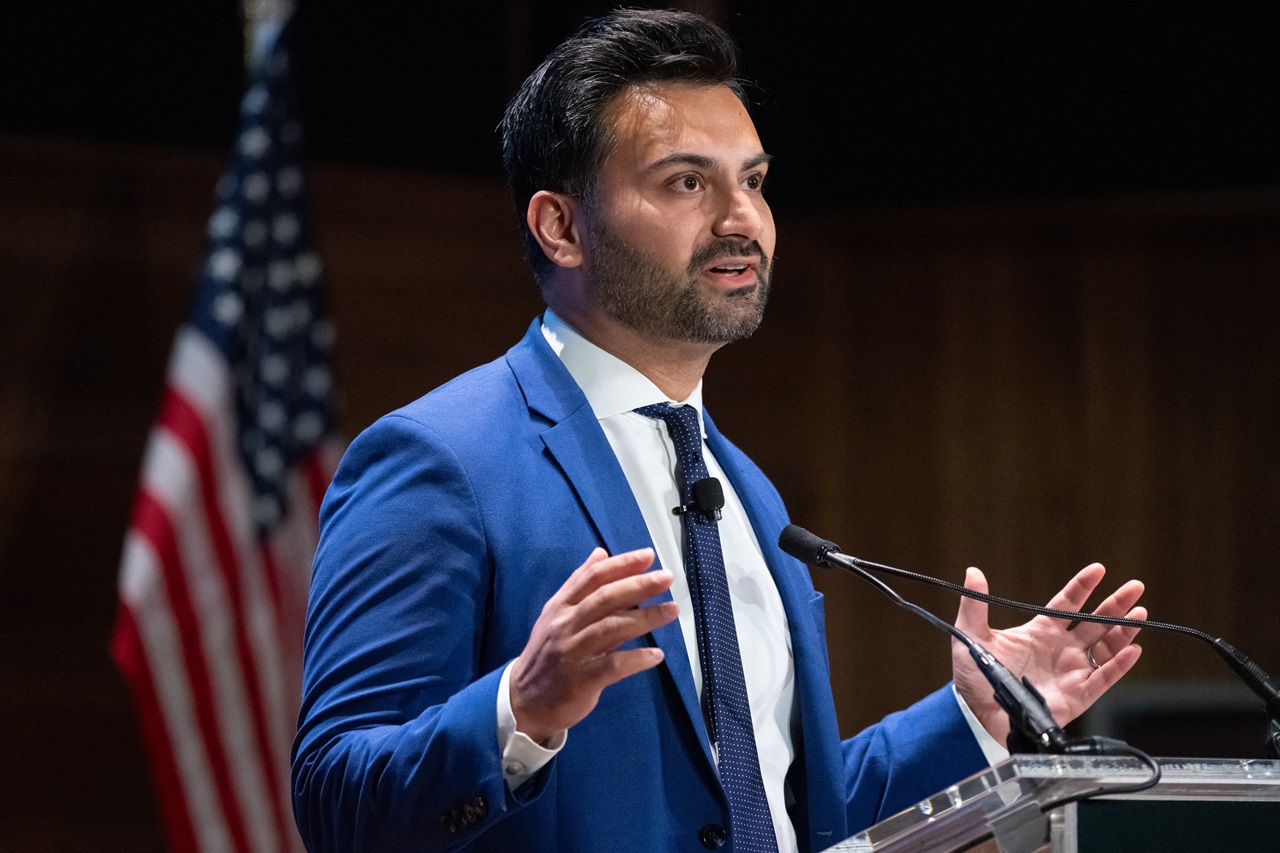
Chellie Cameron: How a career in the Air Force led her to becoming CEO of Philadelphia International Airport
With her extensive career in aviation, Cameron has used the skills she acquired in the field to now lead the state’s largest airport.
Even though she has put together an extensive career in aviation spanning over three decades, it was not something that was on Chellie Cameron’s radar growing up.
In fact, her start in the field was more of a case of happenstance.
“I was really fortunate to receive an Air Force ROTC scholarship that helped pay for my college,” said Cameron in an interview with AL DÍA.
However, the Air Force was just one of three ROTC scholarships she received, in addition to the Army and Navy.
“It’s a funny story actually,” said Cameron, “My mom said to me, ‘we can’t go in the Army, you don’t look good in green.’”
“So we did eeny-meeny-miney-moe between the Navy and the Air Force, and the Air Force won,” she continued.
Cameron noted that while she wasn’t sure exactly what she was getting into, she knew that entering the military was a great opportunity to get a college education. And it became a catalyst for her love of aviation.
“I consider myself very fortunate to have been able to serve in the Air Force and kick off this aviation career,” she said.
Fast forward and since January 2016, Chellie has led the Philadelphia International Airport as its CEO.
“I was really fortunate to be given the opportunity in Philly to move into the CEO role,” said Cameron. “It’s been six years, and I’ll tell you, I’m a better leader today than when I came here 10 years ago and a better leader today than when I assumed the CEO position six years ago.”
Her leadership, she said, has been heavily influenced by the experiences she endured during her seven years of active duty in the Air Force.
The Child of Educators
Cameron was born and raised in Ligonier, Pennsylvania, a small town in the southwest region of the state about 50 miles east of Pittsburgh.
She is the product of two public school teachers — her father was a high school computer science and social studies teacher, while her mother taught elementary school students before becoming a librarian.
“My dad was that really hard teacher in high school, you know, the one that nobody ever wanted to have in class,” said Cameron with a chuckle. “That was my dad.”
Her parents were also both first-generation college-educated students in their family. Each came from hard-working families with modest backgrounds.
Cameron’s paternal grandfather worked as an auto mechanic, while her paternal grandmother was an elementary school teacher, who later went back to school in her 40s.
Her maternal grandparents were both immigrants from Czechoslovakia. Her grandfather worked in the steel mills in Duquesne, Pennsylvania.
Growing up, Cameron remembers sitting at the dinner table, talking about current events and having very meaningful conversations.
“I’m lucky. I’m really, really fortunate to have parents who invested in me and my sister and who wanted to make us, as my dad would say, ‘fully productive citizens,’” she said.
“They wanted to help us become the best that we could possibly be,” added Cameron.
When it came time to make a college decision, Cameron chose the University of Notre Dame in Indiana, marking the first time she left Ligonier.
While at Notre Dame, she earned a bachelor’s degree in Political Science with a special concentration in economics and philosophy.
Developing into a Leader
Cameron’s entry into the Air Force saw her initially get stationed in Alabama.
She was taken aback by the different environment, which she described as “kind of like a foreign country,” compared to southwestern Pennsylvania.
Prior to entering the Air Force, Cameron had never flown on an airplane, and it wasn’t until she became a cadet that she took her first plane ride.
After being stationed in Alabama, she served overseas in Turkey after the first Gulf War for two-and-a-half years.
“Going into the Air Force was really what opened my eyes to different cultures,” she reflected. “Living in a Muslim country, serving with people from all over the country, that was, I think, really my big experience into leaving that small town.”
While being in the Air Force brought its share of challenges — especially for a woman and someone who didn’t come from a military family — Cameron noted that her time of service was great.
“The Air Force really trains you to be a leader, and a leader first when you’re an officer,” said Cameron.
Despite coming up in the Air Force working in budget procurement as a CPA, she credits her military tenure for providing ample opportunities to lead people, always with an eye on completing the mission; whatever it may be.
“I was really fortunate that I got to go through a lot of early leadership training in my career,” she added.
In retrospect, Cameron had long been involved in leadership activities, from student council and the yearbook in high school, and throughout college. However, the experiences in the military provided her the opportunity to really learn about herself and understand her unique leadership style.
“It's something that you have to continue to learn and grow and evolve into as you go on,” said Cameron.
Cameron ended her military service time as an active duty Captain in Washington, D.C. with the Metropolitan Washington Airports Authority (MWAA), which runs and operates Reagan National and Dulles International airports.
Returning to Civilian Life
After seven years of service in the Air Force, Cameron made the decision to leave the branch.
Among several factors, she felt she had reached the glass ceiling.
At the time, women were not allowed to fly fighter jets and were often limited in other capacities, including not being allowed to serve in combat.
In addition, Cameron did not like the prospect of being deployed again.
“I don’t know that I wanted to be that far away from my family,” she reflected. “Family’s always been just really important to me and my grandparents were getting older and I wanted to be able to be within driving distance of my family.”
As she made the transition from the Air Force back to civilian life, Cameron continues to credit her experiences in the military for making her the person she is today.
Making the switch to airport management with the MWAA gave Cameron a much different perspective on aviation.
“I love seeing how lots of companies can come together. How amazing is it that people can fly around the world and across the country?” she said.
After a while, Cameron came to the realization that “airports connect people, and they make commerce and business happen.”
Through her different roles — as manager of airport finance & administration to manager of financial strategy & analysis — she really came to appreciate the role that airports can play in communities.
“What we need to remember in airport management is that this is what we do, this is what we contribute to,” said Cameron. “It’s connecting people, letting people go to the places that they want and need to go to visit loved ones and conduct business.”
From joining to leading the Philadelphia International Airport
After 13 years with the MWAA, Cameron joined the Philadelphia International Airport in 2011, returning to her home state of Pennsylvania.
Her first role with the PHL International Airport was as the deputy director of aviation, finance & administration, before being promoted to chief operating officer over three years later.
In January 2016, Cameron was named the chief executive officer of the Philadelphia International Airport, serving as the City’s chief aviation representative in local, state, national and international affairs.
Prior to the pandemic, Cameron led a team of over 800 employees.

As a woman in a key executive role herself, Cameron said, “I am a staunch advocate for women in leadership roles.”
When Cameron became CEO in 2016, the PHL International Airport had about 14% people of color and 30% women on its senior team.
At one point in 2018, the numbers reached over 40% people of color and nearly 60% women.
“I think that made us better,” said Cameron.
However, beyond just the diversity of the team, Cameron noted the equally-important values of equity and inclusion.
“You can’t just stop by bringing people in the room and putting them into jobs, you have to make sure that inclusivity is how you lead it,” she added. “If you bring people in and they don’t feel included, they don’t feel like their voices are heard, it doesn’t make any difference.”
She continued: “And then equity is all about making sure everybody has an equal opportunity and equal chance to succeed.”
Why Diversity, Equity and Inclusion?
To Cameron, embracing diversity, equity and inclusion should be a no-brainer.
RELATED CONTENT
As she has seen the evolution of her team over the years, she is certain that it has made the airport much better overall.
“Having people of different backgrounds, different genders, people of color, makes a strong organization,” said Cameron.
For companies and organizations that don’t realize the true value of diversity, equity and inclusion, Cameron would advise them to look at their bottom line.
“There is increasing evidence that leading with diversity, equity and inclusion makes you more profitable as a business, it makes you more successful,” she noted.
The Pandemic’s Scare
In March 2020, the United States entered into a pandemic-induced lockdown. Stay-at-home orders were issued, schools were shut down, nonessential businesses were closed, and many workplaces moved to virtual.
The lockdown also had a ripple effect on the airline industry, as both international and domestic flights were subsequently canceled, putting a wrench in the plans of several thousand Americans.
“We had flights operating the entire time during the pandemic, we just didn’t have any people on them other than the flight crews,” said Cameron, noting that at its lowest, the flight crew was down 95% in April 2020.
In a word, Cameron noted the initial impact of the pandemic and lockdowns as “unbelievable.” She compared the terminals of the airport to a bowling alley, to display how deserted it was.
Cameron said she had never felt more devastated than she did at the start of the pandemic.
“Everything that I had worked my entire career to do, our entire industry was getting pummeled,” she said. “I was worried about people and their jobs, I was worried about the ongoing viability of our business. I was worried about coming to work everyday, and the safety of our employees.”
As a result of the pandemic, Cameron said the Airport lost more than $500 million in revenue. Through the three relief packages, it did receive roughly $260 million, but that still left several million to be recouped.
Nonetheless, there are some positives that have come out of the pandemic’s challenges.
“I'm really proud to say that with the exception of a few part-time [employees], we did not do layoffs at the airport,” said Cameron.
Instead, the airport implemented an early retirement program, providing eligible employees with the option to retire early without penalty, as a way to offset the need to furlough and lay-off staff.
Of the approximately 800 airport staff members, nearly 200 took the option, leaving staff down about 25% from 2019 levels.
“We’re starting to climb out of it, but it was just a horribly devastating time,” said Cameron.
Since the pandemic, Cameron has worked tirelessly to help airports get the relief funding needed to keep them running while flights remained limited. She serves on the board of the Airports Council International-North America, one of the premier organizations advocating on behalf of airports.

In 2021, she was named the chair of the US Policy Council, where she worked on policy at the national level to advocate for airports.
“It was really about trying to make sure that we kept things going during a financially difficult time, that we focused on safety and security for our passengers and for employees, and that we did things in the most humane way possible,” said Cameron.
A Brighter Outlook
While looking at the situation today, Cameron made sure to clarify that the airline industry “is recovering,” not yet “recovered.”
As the nation continues to navigate the pandemic, Cameron noted that the Airport is continuing to keep travelers safe through social distancing, mask wearing, air filtration systems, frequent surface cleaning and disinfection, and more.
When asked about her outlook for the future, Cameron said, “I’m very positive.”
She remains positive, despite noting that it will likely take several more years to get back to 2019 levels, if at all.
Pre-pandemic, the Philadelphia International Airport was responsible for nearly $17 billion of annual economic impact.
While it may not reach those levels again due to the pandemic, Cameron noted air cargo as being “the bright star of this pandemic.”
“Our operations, our takeoffs and landings are down, our passengers are down, but cargo is up and it has increased dramatically,” added Cameron.
In June 2021, the Philadelphia International Airport announced an expansion of its air cargo facility footprint as part of its PHL Cargo Expansion Strategy. The strategy is to add thousands of jobs through its new program.
Moving forward, Cameron said she and her team will continue to find ways to bring back as many flights as possible, expand its cargo program, and look at innovative ways to keep passengers first and foremost.
When Cameron thinks about her overarching goal as CEO of the Philadelphia International Airport, she keeps it in simple terms.
“I want to be able to make a difference for communities and for people that live in them. And I think the Airport helps me to do that,” she said.











LEAVE A COMMENT:
Join the discussion! Leave a comment.